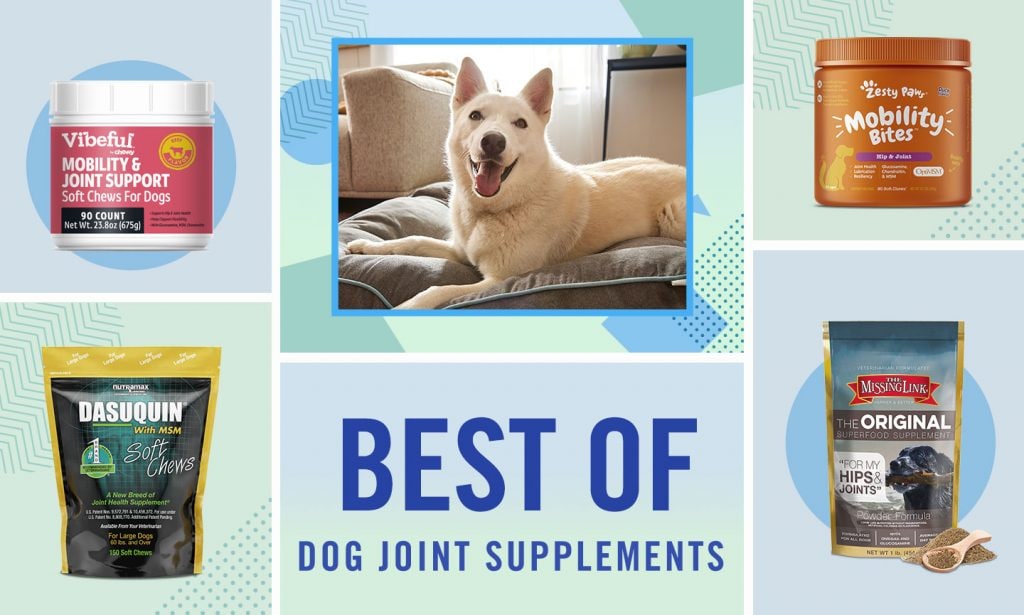Best News For Choosing Natural Dog Company
Best News For Choosing Natural Dog Company
Blog Article
Probiotics Can Aid Animals And Cats Suffering From Allergies.
Probiotics can play a significant part in managing and alleviating allergies of the skin in cats and dogs. These beneficial bacteria help keep a healthy gut microbiome, which in turn supports the immune system overall and skin health. Probiotics are a great way to treat skin allergies in dogs:
Immune System Regulation
Balanced Immune Reaction
Function Probiotics control the immune system through the stimulation of beneficial bacteria in the gut as well as the inhibition of harmful bacteria.
Benefits: A well-balanced immune system can help reduce hypersensitivity reactions which contribute to skin allergies. This can reduce the severity, and frequency, of allergic reactions.
Inflammation Reduction
Anti-inflammatory Effects:
Function: Some strains of probiotics create anti-inflammatory substances and regulate the immune system's inflammatory response.
Benefits: Lowering inflammation in the system can help reduce inflammation and itching that can be associated with allergies of the skin and result in a healthier and more youthful skin.
Gut-Skin Axis
Improvement of Gut Health
Function: The gut skin Axis refers to the connection between gut health and skincare health. Probiotics enhance gut barrier function, which is important for digestion health.
Benefits: A healthy gastrointestinal tract will stop the leakage into the bloodstream of allergens as well as chemicals that could trigger skin reactions. This could lead to a reduction in the symptoms of skin allergies.
Strengthening Skin Barrier
Improved Skin Barrier
Function: Probiotics influence the production of ceramides and other lipids that are essential for maintaining an endocrine barrier that is healthy.
Benefits A stronger barrier on the skin helps to protect against allergens from the environment. This can reduce skin infections and allergic reaction.
Allergy Symptom Management
Treatment for Symptoms:
Function: Probiotics assist in manage symptoms by modulating histamines and other chemical compounds that are involved in allergic reactions.
Pets benefit from this treatment may alleviate itching and other symptoms of skin allergies.
Microbial diversity is a key aspect in improving the quality of our planet.
A heightened diversity of microbes:
Function: Boosts diversity of gut microbiome.
Benefits: A diverse microbiome can better support overall health as well as skin health by preventing the growth of harmful bacteria that could be a cause of allergies.
Certain Probiotic strains
Lactobacillus or Bifidobacterium are two popular probiotic strains that have proven to be effective at treating skin allergies in animals.
Lactobacillus rhamnosus GG: is known for its contribution to improving the health of your gut and decreasing allergy symptoms.
Bifidobacterium helps in reducing inflammation and improves the immune response.
Use Factors
Dosage: The amount of probiotics is determined by the size, weight and health requirements of your pet. Follow the instructions on the label or recommendations from your veterinarian.
Formulations: Probiotics for pets come in various forms such as chews, chewables, capsules and powders. Selecting a high-quality pet-specific product is crucial for safety and efficacy.
Monitoring and Side effects: While probiotics are safe in general, it's essential to watch your pet for reactions that could cause stomach upset. You can minimize side effects by starting at a smaller dose and then gradually increasing the dose.
Conclusion
Probiotics are able to help manage allergies to the skin of canines and cats by enhancing digestive health, regulating immune system and reducing inflammation. Regular usage can lead to an improvement in allergy symptoms. It also promotes healthier skin for pets and an improved quality of their life. Have a look at the top rated petz park for blog advice including pet wellness supplements, mcdowells herbal, pet hops supplements, pet supplements for pets with fear of ear cleaning, pet slippery elm supplements, pet supplements for pets with seizures, pet stress relief, pet supplements for pets with fear of aging and more.
How Can Coconut Oil Aid With Cat And Dog Skin Allergies?
Coconut oil is a safe treatment that can help manage skin allergies in dogs and cats due to its moisture-soothing, anti-inflammatory, antimicrobial and healing qualities. What coconut oil can do for your pet's skin allergies
Moisturizing Properties
Skin Hydration
Use: Coconut oil is an excellent moisturizer that can penetrate the skin easily.
Benefits Hydrates dry, flaky, itchy skin. It soothes itching and promotes a healthier skin barrier. It is a great option for pets with allergic skin conditions like dermatitis.
Anti-inflammatory effects
Reduce Inflammation
The function: Coconut oil contains lauric acid, which is anti-inflammatory. properties.
Benefits The application of coconut oil on affected areas can reduce swelling, redness, and irritation that can be caused by skin allergies. This could provide significant relief to pets suffering from allergic reactions.
Antimicrobial Activity
Fighting Infections:
Function: Lauric and caprylic acids in coconut oils have antimicrobial qualities that help combat viruses, bacteria, and fungi.
Coconut oil is a natural treatment for secondary skin infections that are often due to allergies and itching. It improves overall skin health by preventing any further problems.
Healing and Soothing
Promoting Healing
Coconut oil helps in the natural healing process for skin.
Benefits: It soothes and heals small cuts, abrasions or hot spots that can be caused by excessive scratching. This helps speed up the healing process for skin damaged by allergies.
Barrier Protection
Enhancing Skin Barrier:
The function: Coconut oil helps reinforce the skin's natural barrier.
Benefits: A strong skin barrier helps protect from allergens as well as other environmental irritants. This decreases the chance of allergic reactions or skin infections.
Dietary Supplements
Internal Benefits
Coconut oil is a good choice to take orally as a supplement to your diet.
Benefits: When consumed, it supports overall skin health from inside out. The anti-inflammatory and antimicrobial properties could help reduce systemic inflammation and enhance the immune system of pets, potentially reducing the incidence of skin allergies.
Usage and Considerations
Topical application Application of a small amount of coconut oil to the skin areas that are affected. Massage gently until it is absorbed. It can be repeated one or twice a day, depending on severity.
Coconut oil can also be added directly to pet food. The dosage for pets is usually 1 teaspoon of coconut oil for every 10 pounds.
Coconut Oil Quality: Choose organic, virgin coconut oil that is free of preservatives and additives.
The coconut oil used is usually thought to be safe. However, it is important to monitor for adverse reactions like vomiting or diarrhea after drinking, and any skin irritations that occur when applying it to the skin.
The conclusion of the article is:
Coconut oil can provide an all-natural remedy for allergies to the skin that affect dogs and cats. Its healing and antimicrobial properties, as well as its anti-inflammatory and moisturizing properties, help soothe and protect skin, reduce itching and inflammation, and improve the health of your skin. Regular application of coconut oil on the skin of pets can reduce their allergy symptoms. Have a look at the top rated dog herbalist for blog examples including pet stress relief supplements, pet supplements for pets with travel anxiety, pet energy supplements, natural cat supplements, pet msm supplements, pet supplements for pets with skin allergies, pet supplements for pets with fear of collars and harnesses, cushings disease natural treatment and more.
Probiotics Are Beneficial For Cats And Dogs Who Suffer From Yeast Infections.
Probiotics can help in managing yeast infections in cats and dogs by helping to maintain the balance of microorganisms in the gut and on the skin. Here's how probiotics assist with yeast infections:
Restorative of Microbiological Balance
Balancing Gut Flora:
Function Probiotics are beneficial bacteria which to maintain a healthy balance of microorganisms inside the gastrointestinal tract.
Benefits of a healthy gut microbiome: It supports the immune system and assists to prevent yeast-related illnesses (such Candida). This can help with yeast infections throughout the body.
Competition with pathogens
Competition with Harmful Viruses and Microorganisms
Function: Probiotics have the ability to fight off pathogenic bacteria, for example yeast, within the intestine or on the skin to compete for resources and space.
Benefits By outnumbering, out-competing pathogens like yeast and bacteria, while reducing their ability to infect and maintain an ecosystem of microbes which is healthier.
Modulation of the Immune Response
Enhancing Immune Function
Function: Probiotics assist in control the immune system by enhancing the production of substances that affect it.
Benefits Having a stronger immune response assists the body in fighting off yeast and reduce recurrence.
Antimicrobial Substances to Support Production
Antimicrobial Factors that Influence Production
Function The purpose of certain strains of bacterium (such as Bacteriocins) have antimicrobial properties that can be utilized to combat yeast and other pathogens.
Benefits: Antimicrobial agents will directly hinder the growth of yeast, contributing to the treatment of yeast-related infections.
Reduced Inflammation
Anti-inflammatory Effects:
Function It is known that probiotics decrease inflammation which may be associated with yeast infections.
Benefits. Through reducing inflammation, probiotics help alleviate symptoms of yeast infections, such as irritation, pain or irritation.
Help for Skin Health
Maintaining Skin Barrier Function:
Function: The probiotics assist to keep the integrity of the skin barrier.
Benefits: A healthy skin barrier for the skin makes it less prone to yeast-related infections. It stops fungi and other pathogens penetrating into the skin and creating inflammation.
Use and considerations
Probiotics are of different types: Select probiotic supplements that include strains that are known to improve the skin and fight yeast infections, like Lactobacillus as well as Bifidobacterium species.
Administration: Probiotics may be taken in capsules, as well as chews, powders, and tablets. Probiotic formulations for topical use can be beneficial in treating localized skin infections.
Duration: A long-term probiotic treatment may be required to keep the balance of microorganisms and stop the recurrence of yeast infections.
Consultation with a Veterinarian Always consult with a vet before beginning probiotic supplementation. They can provide advice about the best strains to take and also the dosage and duration dependent on your pet's health needs.
We also have a conclusion.
Probiotics can be a valuable alternative therapy to treat yeast illnesses in cats and dogs. Probiotics promote a healthy microbial equilibrium and boost immune function. They also help reduce inflammation and improve the health of your skin. This can help reduce the frequency and severity yeast infections. Probiotics, when used in conjunction with a comprehensive treatment program, can improve the comfort and wellbeing of pets suffering from yeast infections. Have a look at the recommended kidney failure in dogs for more recommendations including pet allergy supplements, yeast infection natural treatment, pet supplements for pets with fear of vet visits, australian-made pet products, pet digestive health, holistic pet care, pet rutin supplements, pet supplements for foster pets and more.